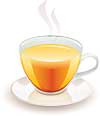Best Foods For Kid's Teeth
A Three-Part Series
When it comes to dental health, what your children eat and drink – and even how they consume it – has a powerful impact on their teeth. And you may find some surprises on the list of good and bad foods.
The worst enemy of your kids’ teeth is acid, which can come directly from the food or drink, or is produced by tooth-damaging bacteria that eat sugar and convert it to acid. This acid is what creates cavities by eating away at the tooth’s protective enamel.
The best friends of your children’s teeth are foods and drinks that neutralize or rinse away acids, supply minerals and vitamins that repair tooth enamel and stimulate saliva production.
The Good Guys: The Best Foods and Drinks for Teeth

1) Water – When it comes to healthy teeth, water is indispensable. It’s the top ingredient in saliva, and is important to healthy teeth and gums. Water is valuable as the final rinsing agent for foods and sugary drinks, and, if fluoridated, works to prevent tooth decay by strengthening tooth enamel.
 2) High-Fiber Fruits and Vegetables –High-fiber foods work like a detergent in the mouth, by “scrubbing” the teeth. It also stimulates saliva flow by requiring longer chewing times. Saliva is the first line of defense for teeth, because it neutralizes tooth-damaging acids. It also contains calcium and phosphates that help rebuild minerals leached away by acids. Crunchy, juicy fruits and vegetables also have high water content that helps offset their sugar content. And high-fiber foods are part of an overall healthy diet, so they offer a double benefit for your kids.
2) High-Fiber Fruits and Vegetables –High-fiber foods work like a detergent in the mouth, by “scrubbing” the teeth. It also stimulates saliva flow by requiring longer chewing times. Saliva is the first line of defense for teeth, because it neutralizes tooth-damaging acids. It also contains calcium and phosphates that help rebuild minerals leached away by acids. Crunchy, juicy fruits and vegetables also have high water content that helps offset their sugar content. And high-fiber foods are part of an overall healthy diet, so they offer a double benefit for your kids.
 3) Dairy Products – Dairy products – without added sugar – help teeth in many ways. Cheese helps stimulate saliva, while its calcium helps replace minerals leached from teeth by acids. Other dairy products, such as milk, yogurt and similar products, also provide calcium and phosphates. Enriched milk also provides Vitamin D, which helps the body use calcium.
3) Dairy Products – Dairy products – without added sugar – help teeth in many ways. Cheese helps stimulate saliva, while its calcium helps replace minerals leached from teeth by acids. Other dairy products, such as milk, yogurt and similar products, also provide calcium and phosphates. Enriched milk also provides Vitamin D, which helps the body use calcium.
4) Xylitol – Sugarless chewing gums of any kind can help boost dental health, because they stimulate saliva production and can help “scrub” teeth. But those sweetened with xylitol – a type of sugar extracted from a variety of plants – can actually battle tooth decay. Xylitol has been shown to work against mutans streptococci, the primary bacteria that causes tooth decay. Besides being used in a number of chewing gums, xylitol is available as a general sweetener at health stores.
 5) Teas, Coffee and Cocoa – Green and black teas contain polyphenols that interact with the bacteria that causes plaque. Polyphenols kill or suppress bacteria, preventing them from growing or producing tooth-attacking acid. The polyphenols in coffee also have cavity-fighting properties. Studies show cocoa to have strong anti-mutans streptococci properties, although chomping sugary chocolate bars isn’t tooth-friendly.
5) Teas, Coffee and Cocoa – Green and black teas contain polyphenols that interact with the bacteria that causes plaque. Polyphenols kill or suppress bacteria, preventing them from growing or producing tooth-attacking acid. The polyphenols in coffee also have cavity-fighting properties. Studies show cocoa to have strong anti-mutans streptococci properties, although chomping sugary chocolate bars isn’t tooth-friendly.
 6) Going Nuts – Many nuts provide vitamins and minerals that help your teeth. These include peanuts (calcium and Vitamin D), almonds (high levels of calcium that helps both teeth and gums), cashews (stimulates saliva and helps clean teeth) and walnuts (fiber, folic acid, iron, thiamine, magnesium, iron, niacin, vitamin E, vitamin B6, potassium and zinc … wow!).
6) Going Nuts – Many nuts provide vitamins and minerals that help your teeth. These include peanuts (calcium and Vitamin D), almonds (high levels of calcium that helps both teeth and gums), cashews (stimulates saliva and helps clean teeth) and walnuts (fiber, folic acid, iron, thiamine, magnesium, iron, niacin, vitamin E, vitamin B6, potassium and zinc … wow!).
 7) Mining for Minerals – Foods that provide vitamins A, C and D as well as calcium and phosphorus, are especially good for the teeth. These foods can be part of an overall healthy diet, as well. These include beef, eggs, fish, potatoes, spinach, fortified cereals, tofu, leafy green vegetables, beans, whole grains and poultry.
7) Mining for Minerals – Foods that provide vitamins A, C and D as well as calcium and phosphorus, are especially good for the teeth. These foods can be part of an overall healthy diet, as well. These include beef, eggs, fish, potatoes, spinach, fortified cereals, tofu, leafy green vegetables, beans, whole grains and poultry.
